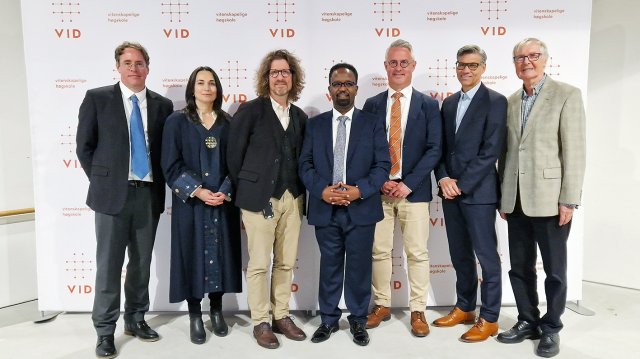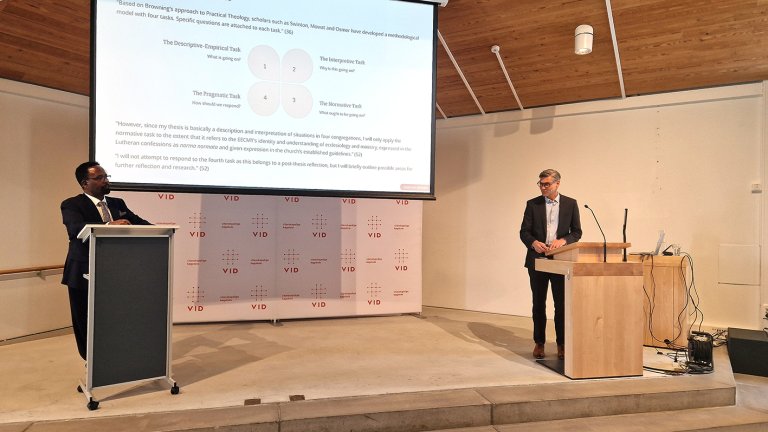Disputation: Charismatic prophets challenge traditional leaders in the world's largest Lutheran church

- By: Kjersti Busterud
- Published: June 4th 2025.
– In many congregations, especially in Southern Ethiopia, charismatic leaders have gained a lot of power, says Teshome Amenu. He recently defended his dissertation on leadership roles in the Mekane Yesus Church in Ethiopia.
Mekane Yesus is the world's largest Lutheran church, with over ten million members.
Amenu says that the church is facing a growing leadership crisis.
– There is increased conflict between traditional, ordained church leaders such as pastors and elders, and emerging charismatic leaders, often called prophets, he explains.
Claims to speak directly from God
The new charismatic leaders often claim to have spiritual authority and speak directly from God, even though they have neither formal education nor ordination.
– Even though they are not officially recognized by the church, they often lead services and have a great influence on life in the congregation, says Amenu.
Many of the charismatic prophets are young. They particularly appeal to young people and women, and have good contact with the emotions and energy in the congregation. They preach in a dramatic way, and can break out in both spontaneous song and speaking in tongues.
– This is in contrast to the traditional church structure, which values order, theological education and formal leadership roles, he points out.
Creates uncertainty about leadership
The new prophets make people unsure of who really has the spiritual authority.
– In some cases, the traditional church leadership has been pushed aside. This has led to disorder and discomfort, especially among older members, says Amenu.
Despite the challenges, the study shows that it is possible to create a good balance between traditional leadership and charismatic expressions. It requires a leadership model that makes room for both prophets, pastors and elders.
– My findings can help church leaders and theological educational institutions to better understand the current situation. It can facilitate better decisions about training, services and leadership roles, he says.
– The study also provides tools for dealing with similar challenges in other churches that are in the tension between tradition and charismatic renewal, he points out.
